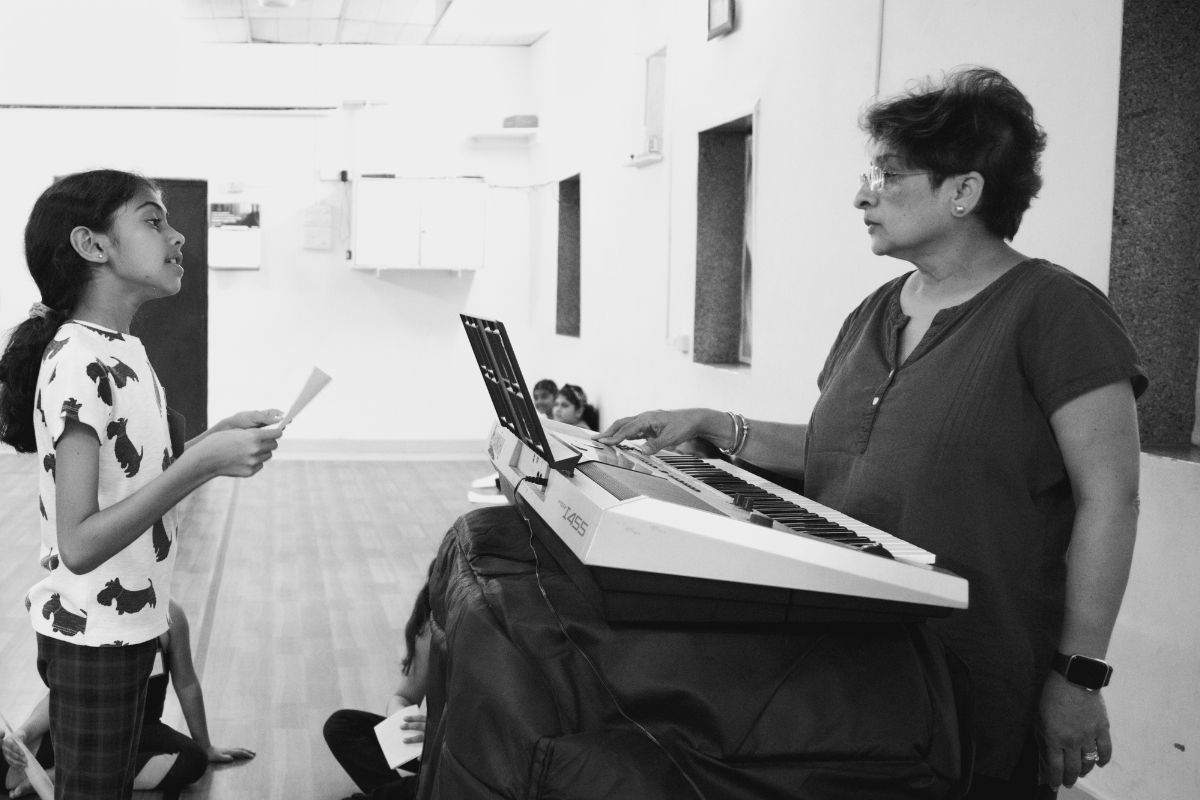Unleashing the Next Generation Big Vocal Star
At just 13, Taylor Swift landed her first artist development deal with RCA Records. By 2003, she became the youngest artist signed by Sony/ATV Tree Music Publishing, marking the beginning of a music career that would eventually lead her to billionaire status. Similarly, in the 90s, Britney Spears captivated the world with her debut single, Sometimes, establishing herself as one of the most iconic performers of her generation. These are some examples of leading artists who began their journeys at a young age. Identifying and nurturing talent during adolescence develops vocal abilities, instills a love for music, builds technical skills, and establishes healthy vocal habits.
Having worked with young adults throughout my career, I’ve witnessed firsthand how vocal coaching can help them unlock their potential. Here’s how coaches can help young singers establish a strong foundation for their musical careers:
01. Building a Strong Foundation
- Basic Vocal Technique: The cornerstone of a singer’s development is mastering proper breath support through diaphragmatic exercises. Pair this with good posture and proper alignment to improve vocal production.
- Pitch and Intonation: Breath support alone isn’t enough. Ear training exercises, such as solfege (do-re-mi) drills, interval recognition, and simple melodies, help young singers develop pitch accuracy. Pitch-matching exercises can further refine their ability to stay in tune.
- Introduction to Vocal Health: Maintaining vocal health is essential to avoid strain and injury. Encourage proper hydration and teach singers to recognize signs of vocal fatigue. Give their voices time to rest and discourage yelling or speaking loudly for extended periods. Age-appropriate warm-ups like humming, lip trills, and light vocal exercises will prepare the voice for each session.

02. Developing Musicality and Expression
- Musical Interpretation: Help young singers not just sing the notes but convey the emotion of the song. Start with simple lessons in musical dynamics (loud vs. soft) and phrasing. Use easy songs to practice these elements and allow singers to experiment with expressing emotions through music.
- Stage Presence: Performance is a critical part of vocal training. Teach young performers the basics of stage presence, including how to stand confidently, make eye contact with the audience, and convey emotions through body language to enhance their overall performance.
03. Vocal Development and Range Expansion
- Gradual Range Development: It’s important to take a gradual approach when expanding a young singer’s vocal range. Avoid pushing them too hard to ensure their natural vocal range develops without strain. Introduce exercises that explore, both the lower and upper ends of their range, focusing on gentle exploration.
- Voice Change Awareness (for Adolescents): For boys and girls going through puberty, voice changes are a natural part of their growth. Help them understand this process and adjust their exercises and repertoire to match their developing voices. Reinforce healthy vocal habits and encourage patience as their voice naturally settles.

04. Technical Skills and Musical Knowledge
- Young singers benefit from learning the basics of music theory, including note reading, rhythm, and key signatures. Start teaching them sight-singing with simple melodies and rhythms to build a foundation. Clear articulation of vowels and consonants is key for better diction and overall singing quality. Introduce the concept of resonance, showing singers how to adjust their voice placement within the head and face to produce a fuller, more vibrant sound.
05. Encouraging Artistic Growth
- Expose young singers to a variety of musical styles early on, from early opera arias and songs in the Italian Anthology to Art Songs, Broadway for young voices, and choral pieces. Encourage solo performances in recitals or competitions and participation in choirs or vocal ensembles. These experiences will help develop their musical ear, ability to harmonize, and overall versatility as performers.
Training young singers involves nurturing their natural talent while equipping them with the technical and musical tools they need to grow. A balanced approach—focusing on vocal health, technique, musicality, and expression—will help them develop into confident, skilled vocalists. With patience, encouragement, and expert guidance, young singers can build a strong foundation for a lifelong love of singing and even a professional music career.

